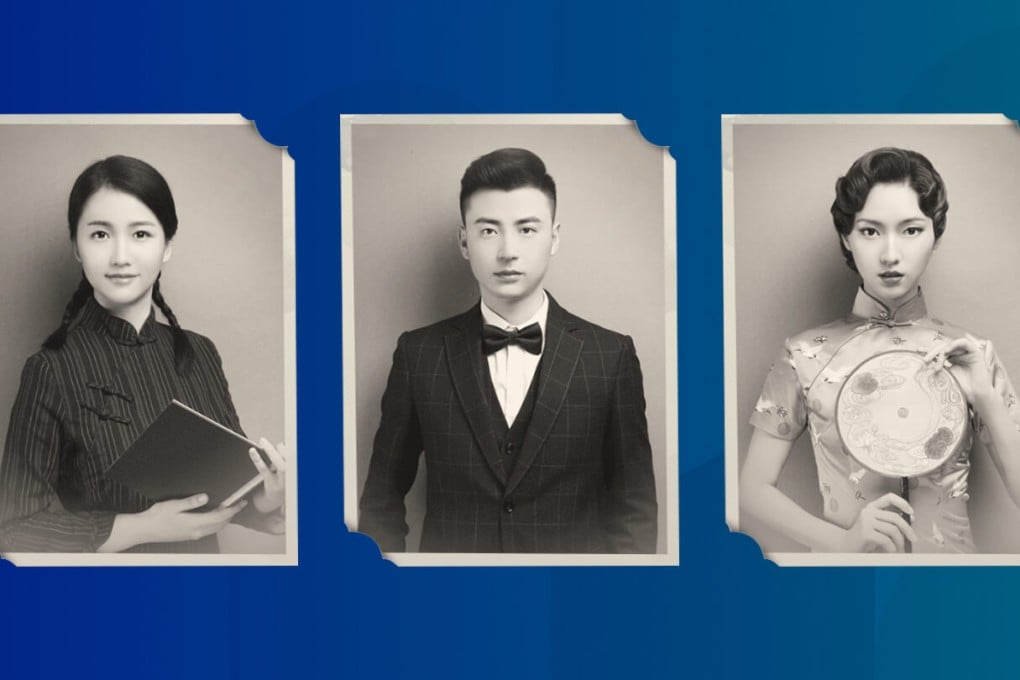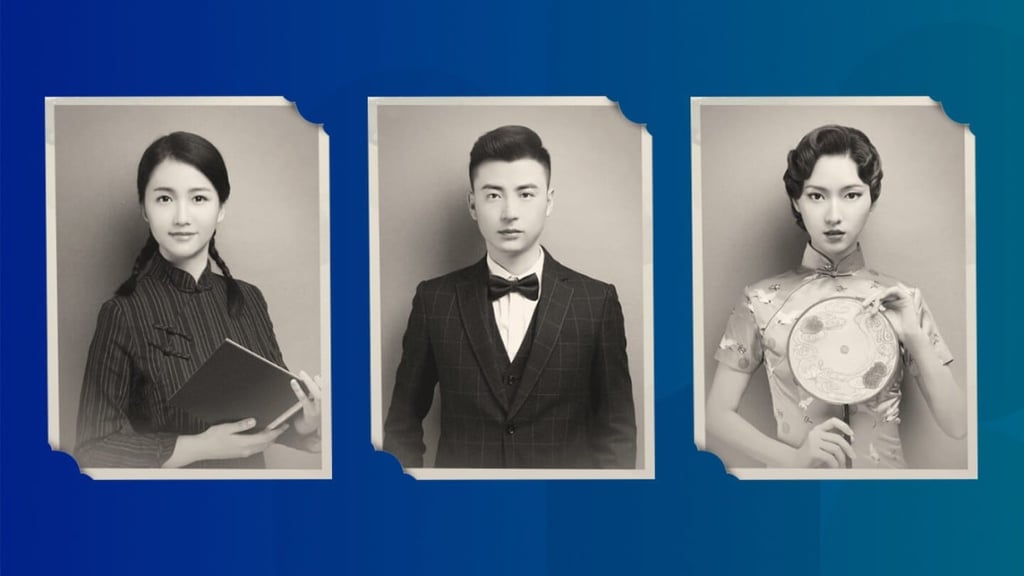Advertisement
China’s newest trend is old selfies
Tencent's selfie app Pitu turns you into a Chinese teenager at the turn of the century
Reading Time:2 minutes
Why you can trust SCMP

This article originally appeared on ABACUS
The latest trend for China’s selfie-taking millennials? Nostalgia.
While Star Wars fans in the West celebrated May 4th with Snapchat’s Chewbacca filter, Tencent’s selfie app Pitu gave China’s youth a taste of the past with a set of filters that turned new selfies into period portraits.
The filters, called “Youth Portraits from My Past Life”, dressed users up in vintage Chinese fashion from the 1910s and 1920s -- when ladies donned the traditional cheongsam (known as qipao in Mandarin), and men wore either long Manchu robes or Western-style suits.
Advertisement

The time-limited filters were released to mark the anniversary of the May Fourth Movement, which saw thousands of college students in Beijing rally on that date in 1919 to protest against the Treaty of Versailles. Many were outraged by the Allied Powers’ decision to transfer German territory in China to Japan.
Advertisement
The filters were an instant hit. On Saturday, Pitu was the most downloaded free program on China’s App Store according to App Annie -- surpassing short video app Douyin and popular mobile game PlayerUnknown's Battlegrounds. Feeds on WeChat and the Twitter-like microblog Weibo were flooded with users posting their black-and-white selfies.
Advertisement
Select Voice
Choose your listening speed
Get through articles 2x faster
1.25x
250 WPM
Slow
Average
Fast
1.25x